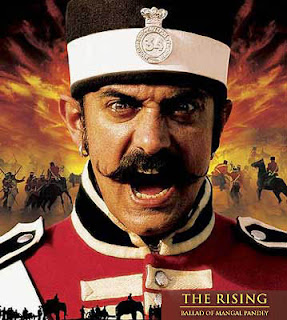Present's Trespass on the Past
History or rather the space of history writing often becomes the battle-ground for competing visions of a nation. In the case of Indian history, many historians, many of whom work out of Delhi or American or British universities often find themselves in an inevitable dialog with present political concerns.
It is often the case that the most ancient of histories are ones with the greatest relevance to present political concerns. This can happen when nationalists start looking back to define a nation and explain roots of a people. For example, the questions of whether the Aryans (by extension, Hindus) were indigenous to India becomes important for Hindutva folks because much of their nationalist ideology rest on the assumption that Hinduism in native to South Asian soil while Islam is foreign. Some of this political rhetoric that drove people to destroy the Babri Masjid and dismember entire Indian Muslim populations, rests on the flimsiest archaeological and numismatic evidence. The other area of controversy in Indian history writing has to do with the period of Muslim rule in the subcontinent.
Debates rage over how benevolent and tolerant Muslim rulers were to the subcontinental population. On the one hand you have modern-day secularists propelled by the Nehruvian dream who highlight the tolerance of Emperor Akbar, his love for his Rajput wife, his concoction of a new religion despite protests from Muslim orthodoxy, the fusion of the "Indic" and the "Islamicate" in Indian cuisine, music and architecture and so on. On the other hand, you have badla-minded folks, with an axe to grind to undo what they see as historical wrongs, ranging from destruction of Hindu temples to Aurangzeb's persecution of certain prominent Hindus and Sikhs. Methinks Hollywood should make a movie on the Mughal Empire in all its splendor, diversity and tensions.
History-writing has also attracted controversy in Pakistan. After General Zia came to power, at a time when Islamism of a certain conservative kind was flourishing all over from Egypt to Iran to Afghanistan, new syllabi were devised to provide historical depth to Pakistan's Islamic nationalism. In Pakistani school textbooks, the 1965 war against India became absorbed into chapters on Islamic history and written alongside great battles in early Islam. Pakistani school children were goaded to understand their heritage as not one that was Indic, but one that was continuous with 10-11th century CE Turks in South Asia. Ridiculous but unsurprising then is President Pervez Musharraf's claim in his recently published, highly self-congratulatory autobiography, that both the Urdu language as well as Pakistani cuisine have evolved out of Turkish counterparts. Completely ignoring their more substantial similarties with languages and cuisines South Asian.
Historigraphy in Bangladesh has also drawn attention of late among secular circles, and rightly so. A certain politicization seems to be creeping in. After a conversation with Dr. Muntassir Mamoon, a popular Bangladeshi intellectual, greatly harangued by student wings of the ruling coalition - I confirmed that references to the word "Rajakar" are being dropped from secondary school history books ["Rajakar" ("Razakar" in Persian) was a term used for loyalists who were against the creation of the Bangladeshi state]. Moreoever, the chapter that describes atrocities committed during '71 on the Dhaka University campus, have dropped mention of Jagannath Hall. Curiously, Jagannath Hall was the site of the largest massacre of DU students, a largely Hindu dormitory. Furthermore, the new set of authors have dropped Sheikh Mujib's adornment of "Bongobondhu." And if one compares the older school history texts before and after the ruling Jama'at-BNP cartel - mention of Mujib has dropped noticeably.
No comments:
Post a Comment